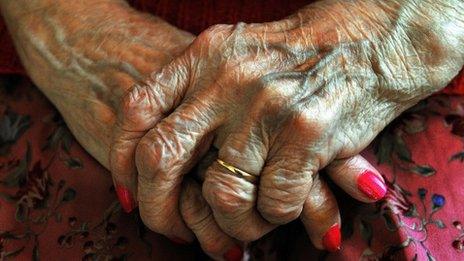Improve end-of-life care for all, say MPs
- Published
- comments
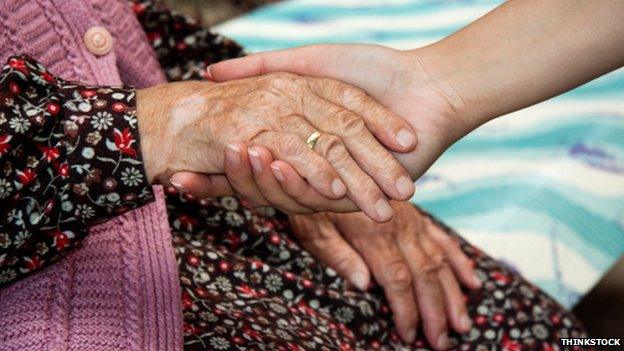
Two-thirds of people say they want to die at home but more than half end up dying in hospital
Social care should be free to everyone at the end of life, says a report by the Commons Health Committee which calls for better recording of what people want in their last days.
The MPs' report, external said there was "unacceptable variation" in the care received by people in England.
Care minister Norman Lamb said the government was looking carefully at a policy of free end-of-life social care.
End-of-life care is defined as people expected to die within 12 months.
Most have incurable or progressive illnesses.
Home or hospice
The health committee report, based on evidence from clinicians, charities and palliative care experts, found "great variation in quality and practice across both acute and community settings".
It recommended that one senior person in each NHS Trust be given responsibility for monitoring how end-of-life care is delivered.
Committee chairwoman Dr Sarah Wollaston MP said: "We must make sure that specialist palliative care expertise is accessible within hospitals and community settings as well as within our hospices."
Around 500,000 people die each year in England and Wales.
According to The Cicely Saunders Institute, external which conducts research into palliative care, approximately 53% of deaths occur in NHS hospitals, with around 21% occurring at home, 18% in care homes, 5% in hospices and 3% elsewhere.
This is despite the fact that two-thirds of people say they would prefer to die at home and 29% say they would prefer to die in a hospice.

'Shocking'
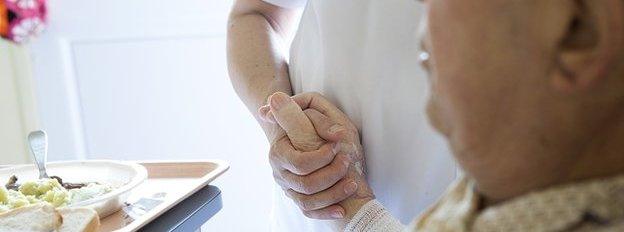
Linda Aitchison's husband, Neil, died from skin cancer nearly three years ago.
She said his last days in hospital were undignified:
"The problem for us was, there was a wonderful team of cancer care specialists within the hospital who did amazing work, but there weren't enough beds in that unit up until sort of 48 hours before he died.
"So he ended up for a week in a general medical care ward where staff had no training and no understanding of any needs of someone who wasn't going to get better.
"It was very shocking for all of us as a family to deal with that."

'A good death'
Diana Stephenson, whose father was able to die at home, urges families to discuss the options for end of life care
Diana Stevenson's father spent his last weeks with pancreatic cancer at home.
She said that having carers from the charity, Marie Curie, visiting every day helped the family give her dad the death he had wanted.
"The reassurance that you got as a family, that you had professionals coming in that you could ask questions and that would give you help, was enormous.
"So we could have gone down the hospital route, but we wanted to give Dad a good death, because you get one death, and I strongly believe that you should make it as a good as an experience as possible.
"As a family, it sounds strange, but we had a lovely six weeks together."

The committee said too often staff felt they lacked the confidence and training to talk about end-of-life issues with patients.
It recommended all staff should also be given relevant training on care planning, and bereavement support should be offered to families.
It also said it wanted the government to ensure that no-one died in hospital, rather than at home, "for want of a social care package of support".
'Wishes respected'
Care Minister Norman Lamb said the government was examining the merits of free social care at the end of life.
"We are looking carefully at the costs and benefits of this policy, but we know that thanks to the hard work of health and care staff and carers, many people already receive good end-of-life care.

BBC Cost of Care project
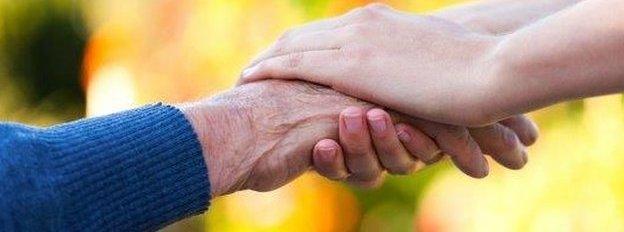
The BBC has launched an online guide to the care system for the over-65s. The "care calculator" covers both residential care and the support provided in people's own homes, for tasks such as washing and dressing.
Users can submit their postcode and find out how much each service costs where they live in the UK.
There is also a dedicated BBC Cost of Care website with news stories, analysis and video.

"We are determined to improve further, and by April, 70% of clinical commissioning groups should be capable of using electronic records to share end-of-life care choices across the health and care system so people's wishes can be respected."
Mr Lamb said that when this happened, more people died where they wanted to be, at home with loved ones.
However, Dr Jane Collins, chief executive of charity Marie Curie, said the current situation had to change.
"We see a big difference depending on the diagnosis, so you're more likely to get good care if you have cancer.
"The majority of people say they do not get the care and support they need and still around half of people in the UK die in hospital despite this being the more expensive option and the place where most people say they would not want to die.
"The challenge for the next government is clear - there needs to be a dramatic improvement in access to high-quality care in the community, available for people early on in their illnesses so that they can live well and stay out of hospital for as long as possible."
- Published12 May 2014

- Published4 July 2014
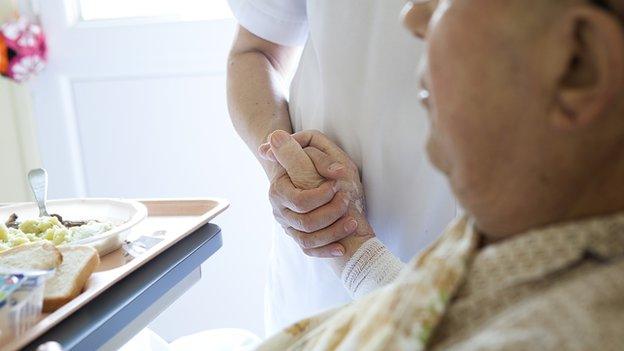
- Published3 June 2014
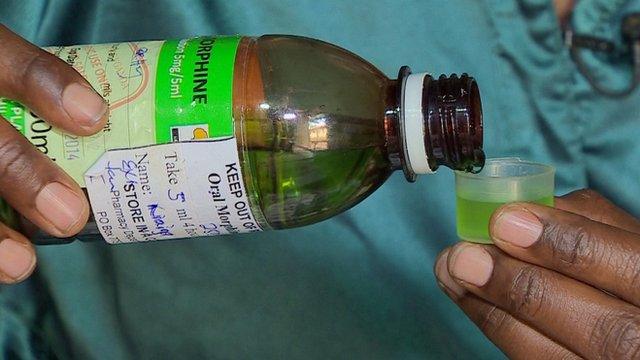
- Published15 May 2014

- Published18 July 2014
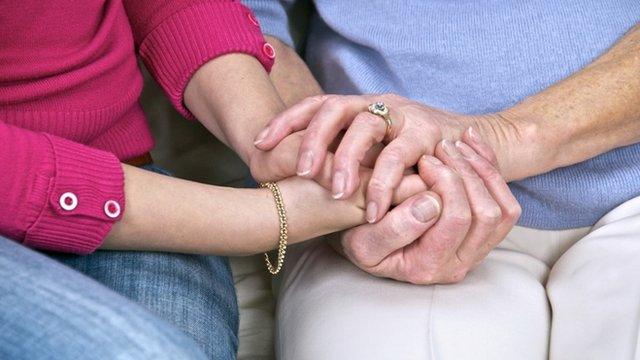
- Published15 July 2013
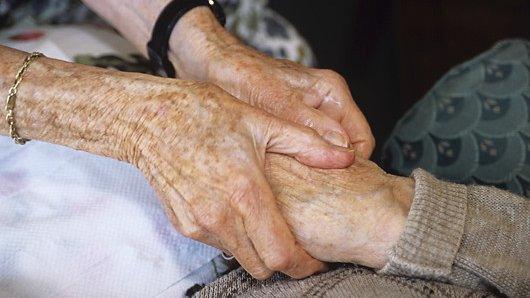
- Published1 November 2012
- Published3 July 2012
